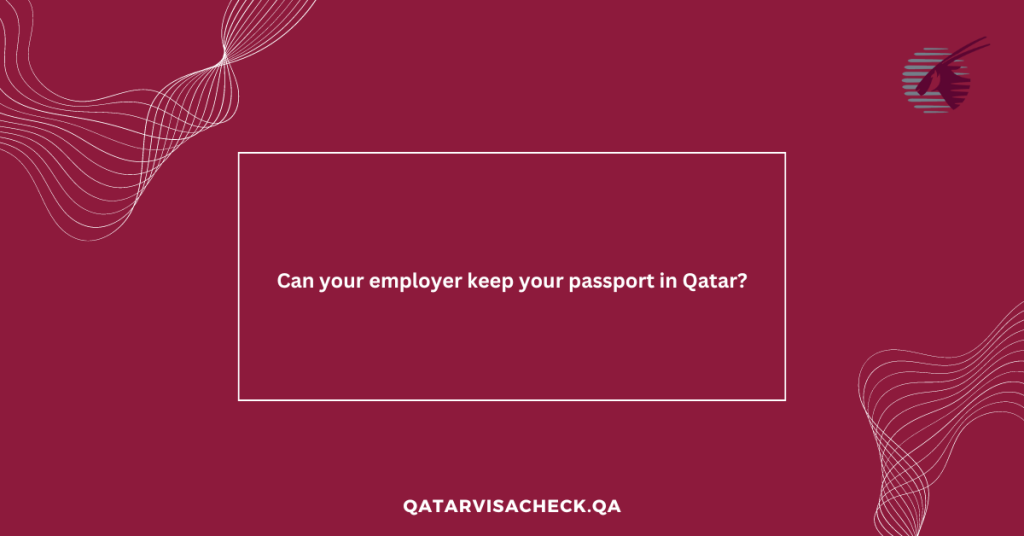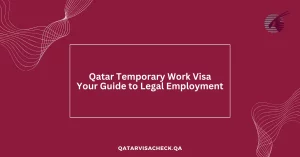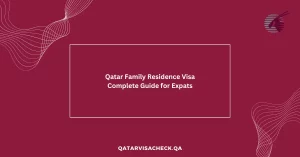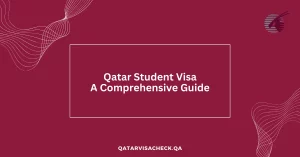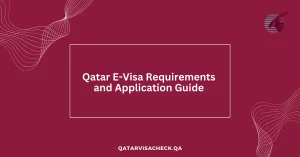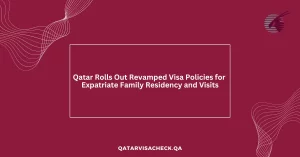As an expatriate worker in Qatar, understanding your rights and the local laws is crucial to ensuring a fair and secure working environment. One common concern that often arises is whether employers are allowed to hold on to their employees’ passports. Let’s dive into the details and clear up any misconceptions.
The Law on Passport Holding
In 2015, Qatar introduced Law No. 21, which specifically addresses entry, exit, and residency requirements for workers in the country. This law, which took effect in December 2016, includes provisions to prevent passport confiscation by employers.
Section 8(3) of the law clearly states:
“The employer shall return the passport or travel document to the expatriate worker after finalizing the permit procedures or its renewal, unless the expatriate worker requests in writing that the employer keeps it with him, provided he shall return it to him/her upon his/her request.”
In simpler terms, employers are required to return an employee’s passport after completing the necessary permit procedures or renewals. The only exception is if the employee explicitly requests in writing for the employer to hold on to their passport. However, even in this case, the employer must return the passport immediately upon the employee’s request.
Penalties for Non-Compliance
If an employer refuses to return an employee’s passport upon request, they can face serious consequences. The Ministry of Labor has the authority to subject non-compliant employers to penalties, as withholding an employee’s passport is considered illegal under Qatari law.
Employers found guilty of confiscating passports can be fined up to 25,000 Qatari Riyals (approximately $6,865 USD). This substantial penalty serves as a deterrent and underscores the seriousness of the offense.
Safeguarding Personal Documents
The law further stipulates that employers must provide accommodation with personal storage facilities for each worker. These storage units should be lockable and accessible to workers at all times, allowing them to securely store their personal belongings, including passports and other important documents.
Retrieving Your Passport
If you find yourself in a situation where your employer is unlawfully holding your passport, it is advisable to take prompt action. You can file a complaint with your respective embassy or directly with the Ministry of Labor.
The Ministry of Labor offers various platforms for submitting complaints, including visiting their offices, calling their helpline (16008), sending an email to [email protected].
Legal Procedure for Resolving Disputes
If you encounter any disputes with your employer, including issues related to passport confiscation, you can initiate the legal resolution process through the Administrative Development Labor and Social Affairs (ADLSA).
Here’s a brief overview of the process:
- Lodge a Complaint: Workers can lodge complaints with the ADLSA up to one year after the end of their contract. This service is free of charge.
- Conciliation Meeting: The ADLSA will request both parties to attend a compulsory conciliation meeting, where they will attempt to resolve the dispute amicably.
- Worker’s Dispute Settlement Committee (DSC): If a solution is not reached during the conciliation meeting, the case will be submitted to the DSC. Both parties will have the opportunity to present evidence and arguments during the hearings.
- Appeal Process: If either party is dissatisfied with the DSC’s decision, they can appeal before the Appellate Court.
It’s important to note that the ADLSA provides free legal advice to workers. If you require assistance with navigating the complaint process or understanding your rights, don’t hesitate to reach out to the ADLSA helpline or visit their office.
Safeguarding Workers’ Rights
Qatar’s labor laws are designed to protect the rights and well-being of both employers and employees. By prohibiting the confiscation of passports and providing clear legal recourse for workers, the country aims to foster a fair and transparent working environment.
Remember, knowledge is power. Familiarizing yourself with the relevant laws and procedures empowers you to take appropriate action if your rights are ever violated. Don’t hesitate to seek assistance from the proper authorities to ensure your interests are protected.

Hey there, I’m Hamza Al-Abdullah, the brains and heart behind Qatarvisacheck.qa. Proudly rooted in the bustling city of Doha, Qatar, I’ve made it my mission to untangle the visa web for fellow travelers. My website isn’t just a hub for visa info; it’s a personalized journey through the often confusing world of travel documents.

